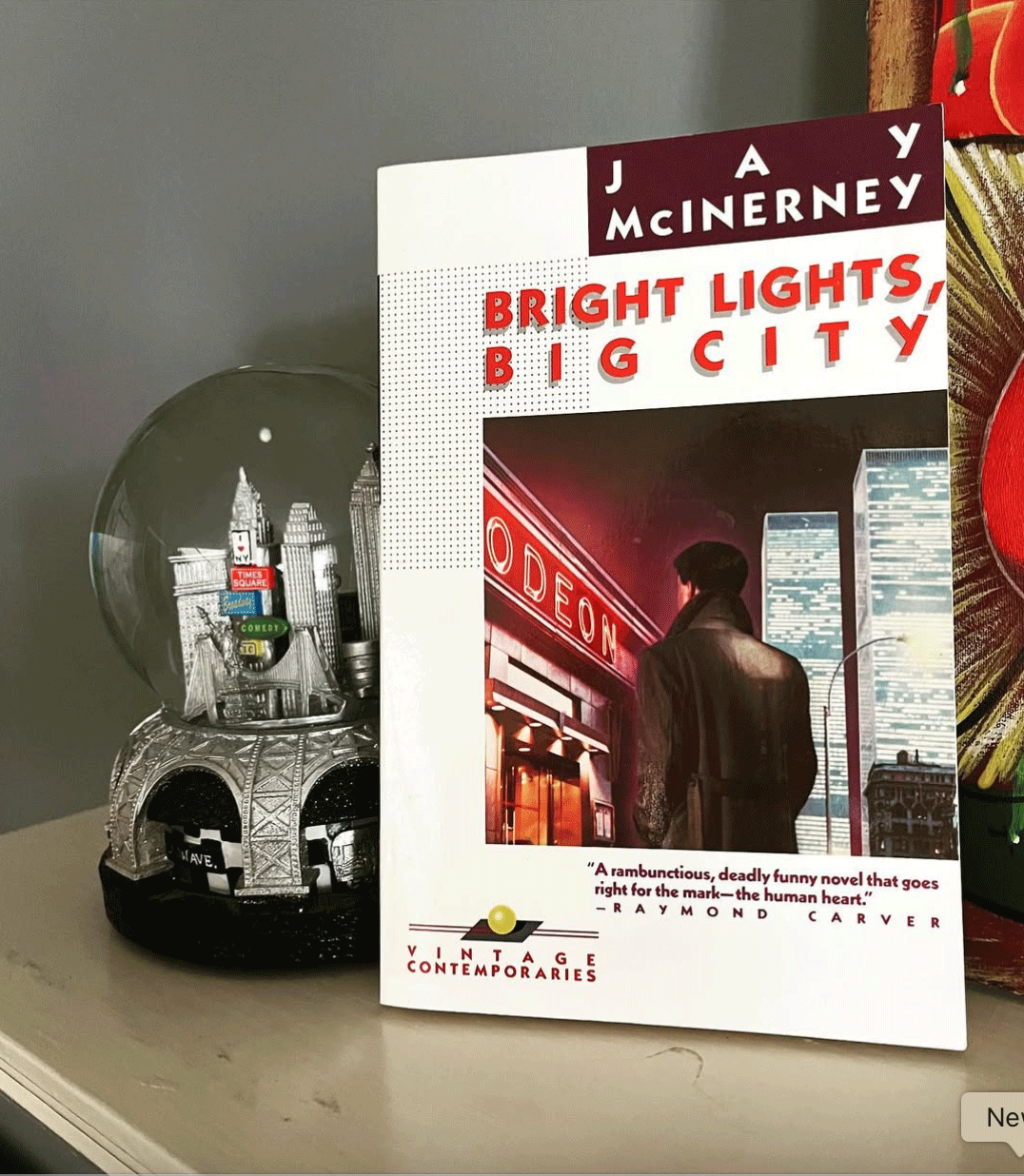Bright Lights, Big City
Let’s talk time capsules. This particular copy of Jay McInerney’s Bright Lights, Big City is one in and of itself. I don’t recall where or how I acquired it, but I definitely didn’t buy it new. Yet there’s no way anyone had ever cracked the spine on this Vintage Contemporary that boasts an image of the Twin Towers. So just the act of opening the book, with its back-of-the-book list of other books you could purchase via a 1-800 number, felt like a time warp. But especially in light of my previous post about the preponderance of male characters in fiction, BLBC — with its aimless, hard-partying, and nameless (male) protagonist — feels anachronistic. I mean, check out who wrote all the blurbs: Raymond Carver, George Plimpton, Tobias Wolff. Would this 1984 novel about a fledgling writer who jousts with his fact checking job and continually falls prey to “Bolivian Marching Powder” while also trying to score with a woman (his wife has left him for the fashion model life) resonate in 2022?
So I felt like I was reading a relic, something unearthed from, well, the 80s. (Doesn’t help that for the majority of readers, McInerney is still defined by his “Literary Brat Pack” designation.)
The short of it: I was completely won over by this story about a directionless man and the reasons that might contribute to his wandering. (You gotta keep reading for any sympathy to build.) McInerney has written in the second person, which is unusual…and the execution is successful. BLBC is much like a 30-years-on version of The Catcher in the Rye, and although that is definitely not a favorite of mine, it’s a real “moment in time” kind of work: in the case of Bright Lights, Big City, a time when American society is led by the kind of people who grew up in a “rambling Tudor affair on the shore of Marblehead,” an environment where “Everyone in Kansas thought you came from New York City, whether you said Massachusetts, New England, or just East Coast” and where aforementioned Kansans “asked about the Ivy League, as if it’s some sort of formal organization.” (Hey, I’m not saying power centers don’t exist anymore, but I think they mostly exist elsewhere.)
In other words, bygone days.
originally published on instagram

